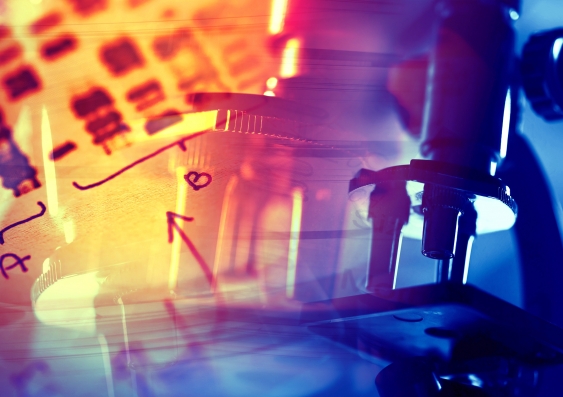UNSW researchers secure $13.5m for 10 projects in latest ARC funding
Projects in key research areas from energy storage and robotics to psychology have been awarded national grants.
Projects in key research areas from energy storage and robotics to psychology have been awarded national grants.

UNSW Sydney researchers have received almost $13.5m from the Australian Research Council (ARC) for 10 projects in key research areas including the development of a revolutionary technology for storing renewable energy without the need for batteries, a study of the unique properties of liquid metals, and nine fellowships for the University’s brightest mid-career researchers.
The grants are part of the $180.4m in 2018 ARC program funding announced on Thursday by federal Minister for Education and Training Simon Birmingham.
Professor Zhao Yang (Joe) Dong from the School of Electrical Engineering and Telecommunications secured more than $3m under ARC’s Industrial Transformation Research Hubs (ITRH) for Integrated Energy Storage Solutions. The five-year project is expected to generate cheaper and more effective storage devices for renewable energy which will result in reducing carbon emissions and improving efficiency in the energy sector.
Professor Dong, who is one of the University’s Strategic Hires and Retention Pathways (SHARP) researchers, said energy storage is a major hurdle to the broader use of renewable energy. He said the University’s Integrated Energy Storage Solution overcomes this barrier as it converts excess renewable energy into gas that can be stored and, when needed, can be burned to produce electricity.
“Congratulations are due to UNSW Sydney Professor Joe Dong on leading one of only two Industrial Transformation Research Hubs awarded to Go8 universities,” Professor Nicholas Fisk, Deputy Vice Chancellor (Research) at UNSW, said. “These are pivotal in supporting the very best university researchers to collaborate with the new industrial economies toward finding results.”
In addition, ARC awarded more than $7.2m in Future Fellowships to nine of UNSW’s outstanding researchers in science, engineering, medicine and social sciences. The Future Fellowships scheme supports research in areas of critical national importance by giving outstanding researchers incentives to conduct their research in Australia.
Professor Fisk said: “Our robust results in the latest Future Fellowships round solidifies UNSW’s commitment to nurturing world-leading early and middle-career researchers whose work improves the lives of people in Australia and around the globe.”
Among the largest Future Fellowships announced was $953,217 to Associate Professor Kalervo Gulson from the School of Education, for a project investigating the use of artificial intelligence in education and the connection between education systems and technology companies.
Dr Danyang Wang from the School of Materials Science and Engineering received $873,125 to establish a bridge between the diverse electronic properties of oxides and the semiconductor platforms to generate new devices and functionalities. This will fundamentally change the route toward novel transistors based on high speed and low energy oxide electronics.
Another large grant ($870,125) was awarded to Dr Kristopher Kilian, who holds a joint position in the schools of Chemistry, and of Materials Science and Engineering, for work in regenerative medicine, specifically reprogramming a patient’s cells to treat disease. This project aims to achieve mechanisms for cell reprogramming, 3D printing of living cells and commercially-viable reprogramming materials.
Dr Melissa Merritt from the School of Humanities and Languages received $850,525 for a project investigating how key ethical ideals from philosopher Immanuel Kant, such as human dignity, autonomy, cosmopolitanism and good will, emerged from ancient Stoic ethics.
Associate Professor Yvonne Wong from the School of Physics will use a $798,125 grant to explain the nature of dark matter and provide a solution to the so-called small-scale crisis. This project will contribute to both particle physics and astrophysics/astronomy and advance knowledge beyond the immediate goal of clarifying small-scale problems of cold dark matter.
School of Computer Science and Engineering’s Dr Lijun Chang secured a $766,125 grant to study advanced cohesive subgraph searches, as well as design efficient and scalable techniques to conduct such searches. Cohesive searching over big graphs is demanded by many applications, such as risk management, cybersecurity, crime detection, social marketing and community search. This project will develop, analyse, implement, and evaluate novel indexing and data processing techniques to support advanced cohesive subgraph searches. It will benefit applications in fintech, cybersecurity, e-commerce, crime detection and social network analysis.
Dr Thanh Vinh Nguyen from the School of Chemistry received $739,125 for a project to develop synthetic applications of tropylium ions as versatile building blocks, to access a broad range of organic structures that used to be problematic to synthesise. This project expects to use tropylium ions as chromophores to derive novel ‘push-and-pull’ organic dyes with highly applicable physicochemical properties. This will provide access to a family of novel complex organic structures in a new chemical space, as well as new materials for opto-electronic and sensing applications.
The Climate Change Research Centre’s Dr Laurie Menviel secured a $714,125 grant to study changes in ocean dynamics and biogeochemistry. The project will measure changes in oceanic circulation on ocean acidification and oxygen content with a state-of-the-art high-resolution ocean carbon cycle model. This will improve understanding of processes and feedbacks within the Earth system.
Dr Tjeerd Boonstra from the Black Dog Institute will use a $701,645 grant to study the structure and function of the human spinal connectome. This project will use complex network analysis to map the interactions between the brain and body, to understand how the central nervous system controls our movements. The project will provide fundamental insights into mechanisms that coordinate activity in the human motor system, and how the breakdown of coordination may lead to movement disorders. Future applications include restoring motor function through brain stimulation, prosthetics and robotics design.